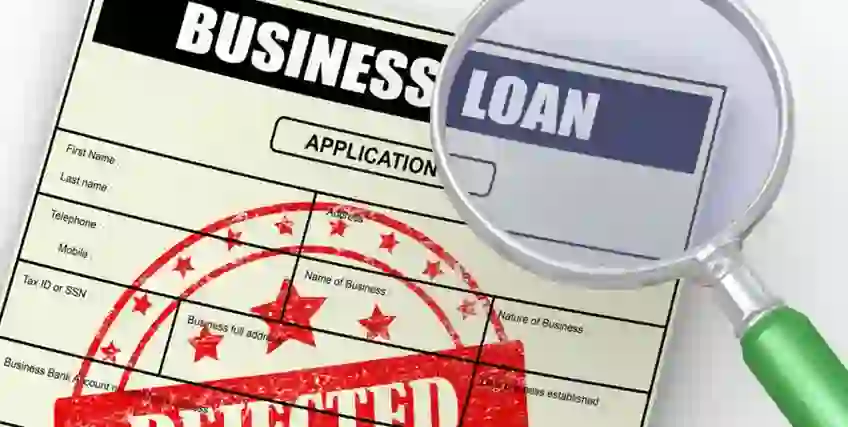Seven Steps for Business Acquisition Loan Success
September 23, 2025 | Last Updated on: September 23, 2025

When you decide to acquire a business, you want to be in the best shape you can to make the offer to win the deal and have the best financing option. Often, one loan option is taking out a business acquisition loan. Business owners should follow seven steps when getting a loan to buy their next business and be successful.
As with any other type of small business funding application or lines of credit, borrowers who want to succeed with a business acquisition financing loan must prepare in advance and research various financing options, including the loan amount they need, the loan terms, and the repayment terms.
Beth Goldberg, Director of the New York District SBA Office, said that in addition to the seven steps outlined below, entrepreneurs should first put themselves in a lender’s shoes when applying for business acquisition funding.
“The best advice I can give is to be totally prepared. That means reviewing your credit score and knowing the exact amount of money you need and how those funds will be used. Lenders want to know that they’ll be paid back, and the best way to assure them of this is to tell them, in their own language, that you know what you’re doing and that you will be profitable.”
Role of the Small Business Administration
Small business owners can finance business acquisitions using SBA 7(a) loans. The Small Business Administration does not make SBA loans directly. Instead, the federal agency provides government-backed guarantees to banks and other lending institutions that help the lenders mitigate risk. At the same time, SBA loans enable borrowers who might not otherwise qualify for business acquisition loans to secure the funding they need.
Goldberg emphasized the valuable role of the SBA’s Resource Partners –SCORE chapters, Small Business Development Centers, and Women’s Business Centers. These partners can provide crucial guidance and support, helping business owners navigate the loan application process and ensuring they check all the right boxes.
In the past several years, the SBA has continued to set records for loans it backs. These business acquisition funding loans, most of which are term loans, are very popular with lenders and small business owners, making them one of the best ways to fund your business acquisition plans. Like any other type of small business funding application, borrowers who want to be successful must prepare in advance.
What to Know About Small Business Acquisition Financing
Borrowers can use small business acquisition loans for various needs, such as covering startup costs, buying commercial real estate, or buying a franchise.
Be sure to shop around with various SBA lenders and credit unions for your business loan, to get the most competitive rates and check your eligibility.
Beth Goldberg, Director of the New York District SBA Office, said that besides the seven points below, entrepreneurs should put themselves in a lender’s shoes whenever they consider applying for a small business loan.
“The best advice I can give is to be totally prepared. That means reviewing your credit score, knowing the exact amount of money you need and how those funds will be used. Lenders want to know that they’ll be paid back, and the best way to assure them of this is to tell them, in their own language, that you know what you’re doing and that you will be profitable.”
Seven Steps for a Business Acquisition Loan
To find success in securing loans to purchase a business, borrowers should have the following:
1. Letter of Intent
When seeking a loan to fund a business acquisition, having a signed letter of intent to purchase is a requirement for just about any small business lender. The letter should outline the terms of the deal and include a contingency clause explaining that the purchase is contingent on the buyer’s ability to secure the funding required to buy the business.
2. A Strong Personal Credit History
Typically, to secure a small business loan, lenders will look for an individual owner (or partnership members if the business has multiple owners) to have credit scores of 650 or above. Naturally, the higher the credit score, the better the potential borrower's chance of securing financing. Those with personal credit scores in the 750-850 range stand a good chance of getting a loan and are usually able to do so at a more attractive interest rate than someone with a lower credit score. It’s a simple law of economics for the lender: the higher the risk, the higher the reward (in the form of increased interest rates charged).
3. Personal Financial Statement
The personal financial statement provides financial information about the borrower(s) intending to acquire the business. In partnerships, everyone with 20% equity or more will be a loan guarantor, meaning all shareholders must provide this documentation.
4. Two to Three years of Tax Returns
Lenders want to know that you’ve been staying on top of all your obligations. When you apply for a loan, lenders typically ask you to produce your recent tax history. To be on the safe side, be ready to have three years’ worth of personal tax returns to show your lender. Borrowers with existing businesses should be prepared to provide returns filed by those companies.
5. Financial Statements from the Acquired Business
Most lenders want to see the company’s annual revenues and three years’ worth of financial documents – profit & loss statements, balance sheets, and cash flow statements – from the company borrowers seek to acquire. Lenders will use these documents and disclosures to assess the viability of the business borrowers seek to acquire. Remember, their main concern is whether or not borrowers will repay the loan. If the target company has lost money for the past three years, securing the financing to purchase it will be much more challenging. Borrowers should be ready to explain in detail how they will turn the business around.
6. Investing Your Own Resources In The Business
Lenders want to make sure that borrowers are serious about the business before they approve a loan to buy a business. One way to prove it is by investing your own money into the venture. After all, if you’re running the business and aren’t willing to put up your own money, why would a lender want to? Some banks will look for a minimum owner contribution of 10 percent as a down payment. Others prefer 20 percent. A higher percentage is an indication that you are willing to put “skin in the game” and conveys that you are committed to making the business succeed.
7. Business Plan
A well-written business plan can make the difference between lenders approving or denying the loan. It should include:
- Executive Summary (keep to one or two pages)
- Business Description
- Description of the Local Market and Competitive Landscape
- Product or Service Details
- Sales and Marketing
- Management Team
- Financial Data (break-even analysis, cash flow projections, sample balance sheet, etc.)
- Owner Investment
- Appendices (charts and graphs, logos and other images)
The goal of a business plan is to provide a blueprint for the success of a business. It conveys to potential funders the path you will take and how quickly you plan to get there. A business plan should not be a “one and done” document. Ensure you’re sharing your latest version with your lender so they can see the recent challenges and opportunities your business faces.
Bottom Line about Business Acquisition
When you’ve crossed those seven steps off your to-do list, you should be ready to apply for your new business acquisition loan. Bring that knowledge with you and you’ll be setting yourself up for success.
FAQs about Business Acquisitions
What is a business acquisition loan?
A business acquisition loan is a loan that owners can use for various reasons, including both tangible assets, such as real estate and non-tangible assets, such as client lists. These loans are available through traditional banks, credit unions, and online lenders.
How to get a business acquisition loan?
To get a business acquisition loan, borrowers will need several financial documents. These include financial statements from the target business, a strong personal credit score, and a letter of intent.
How long does it take to get a business acquisition finance loan?
Generally, the approval for a business acquisition loan takes between 60 and 90 days, but it depends on several factors.
How much money can I borrow?
It depends on the type of business acquisition loan and on the lender. For example, the maximum amount is $5 million for 7(a) loans.




